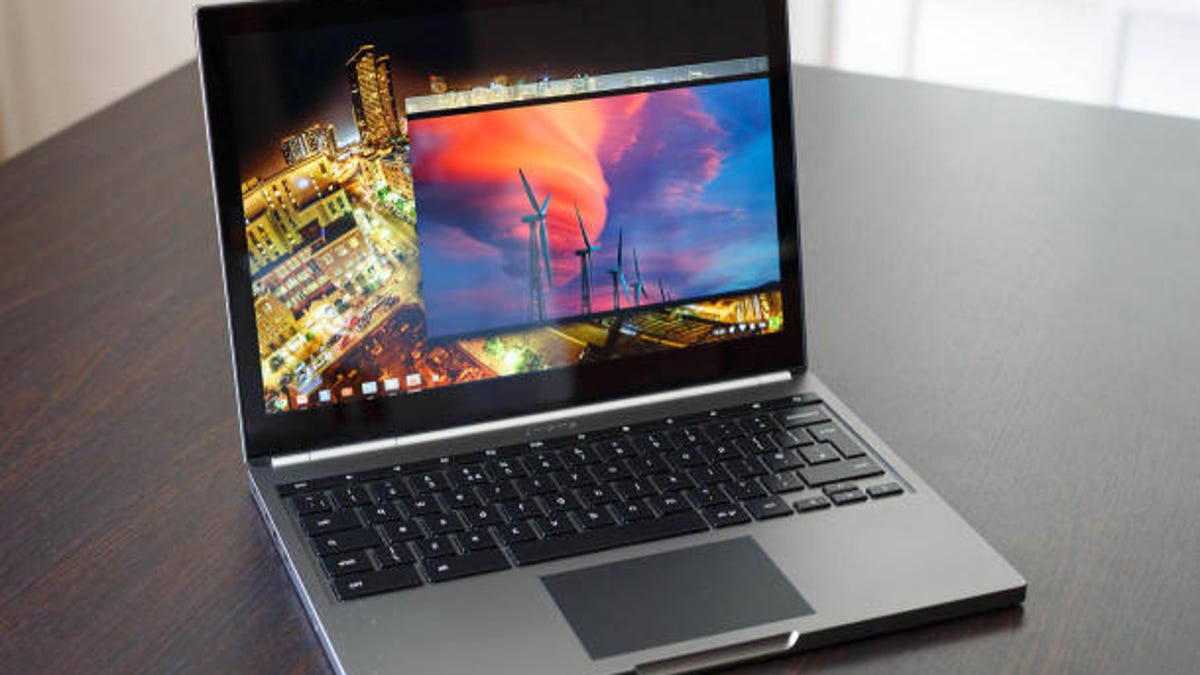Pixel's camera failure only one of many
The Chromebook Pixel may be pretty, but it can't talk to cameras -- among the many problems that keep it from being a prime-time laptop.

SAN FRANCISCO -- Google's expensive Chromebook giveaway here at its I/O 2013 conference can't handle connecting to digital cameras, but that's just one of many problems the laptop causes for its owners.
Chromebooks, which run Chrome OS (read review), are a perpetual work in progress. Updated every six weeks or thereabouts, just like the browser they're based on, Chromebooks rely on the promise of the modern Web.
But getting browsers to talk to commonplace hardware like USB ports, Webcams, and microphones is no easy task. Web Real-Time Communication (WebRTC), a plugin-free way to stream video, audio, and files in the browser, is relatively new to Chrome. Chrome is the first browser to fully support the HTML5 standard, which originated at Google, and has just been added to the most recent Firefox Beta.
Because it runs on what is essentially a souped-up browser, Chrome OS faces the kinds of difficulties that don't plague other operating systems. The regular updates can be a two-headed coin. Changes are made regularly and the browser OS gets better more often than not and on-schedule. But it also means that if the browser's performance is off during an update cycle, you're stuck with that hit.
Read CNET's review of the Chromebook Pixel
One ongoing problem is that Chrome OS drops tabs from virtual memory with alarming frequency, which means that when you're streaming music or video and switch tabs, the Chromebook will eventually stop streaming unless you jump back to that tab again.
Erik Kay, Google's technical lead for Chrome Extensions and Google Apps, told CNET at Google I/O 2013 that managing tab memory is tricky for numerous reasons. "Your 20 tabs are doing more things now than they were just a few years ago," he said.
Ian Ellison-Taylor, director of Web Platform Product Management, agreed. "We have done a lot of work on performance per tab, and on our own apps as well," he said.
The first steps toward solving the virtual memory problem have been completed, Kay said. They've been able to get a tab to recognize when it's streaming audio. The next step, he said, is much harder: keeping that tab with streaming audio from dropping the stream from memory.
"We're trying to find the right balance between memory use and what the tab is doing." But, he said, "we've taken a more mobile approach [with Chrome OS]. iOS and Androids don't have virtual memory, either."
And the camera bug means that if you're shooting on a CompactFlash card, like the Canon DSLRs, you must carry a card reader with you to transfer images. Cameras shooting onto SD cards are in a slightly better position, since many Chromebooks come with SD card slots, but it's still annoying to not be able to connect your camera directly.
There are other hardware annoyances, too. Google has played with the keyboard on all Chromebooks, so that the Caps Lock key has been changed to a dedicated search key. The good news is that Google has provided an easy way to re-map it back to Caps Lock in the settings, but the company has deleted the Delete key. A solution such as allowing Shift-Backspace to serve the same function as Delete could go a long way toward fixing that, but so far Google has left Delete users hanging.
These may seem like nitpicking small problems and edge cases, but in sum they exemplify why it's hard to recommend Chromebooks. Even with bimonthly updates, they're just not good enough yet.

